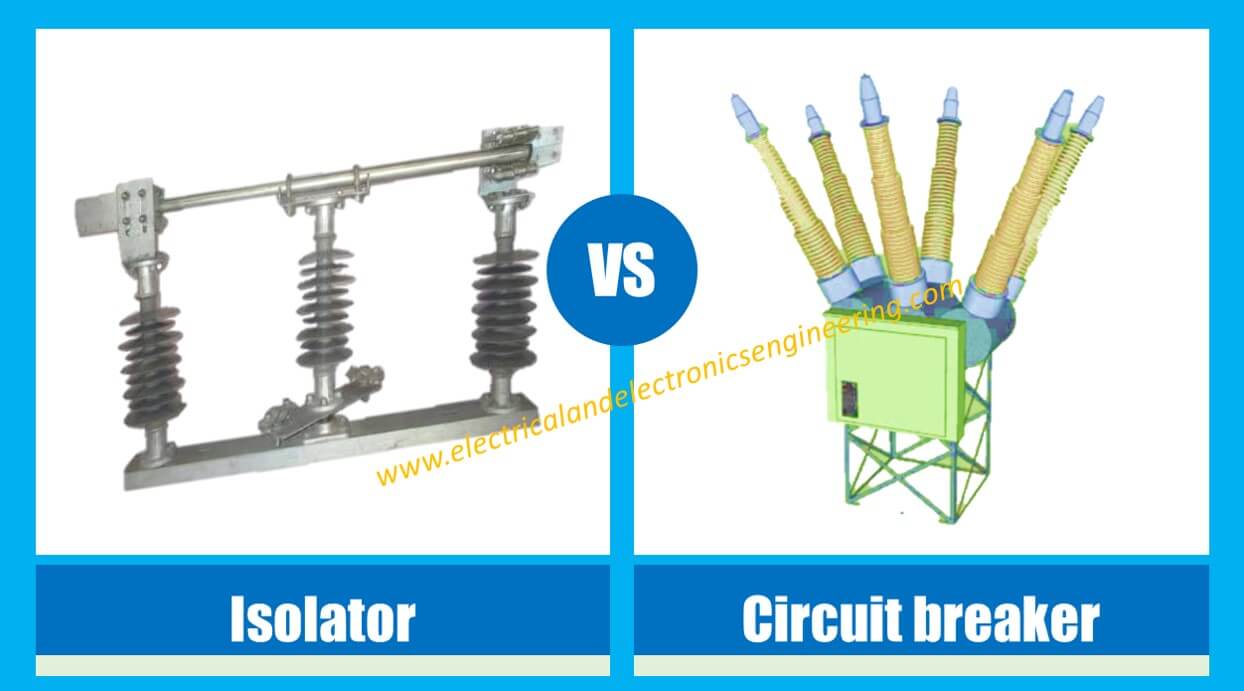The Isolator is an electrical device which is used for disconnect a circuit under no load condition whereas a circuit breaker is an electrical device which opens circuits under fault conditions. A circuit breaker is different from isolator because it can operate under no load, full load or faulty conditions. In this post you’ll learn top 10 difference between Isolator and circuit breakers:
| Isolator | Circuit breaker |
| Is used to isolate some portion of circuit from entire system | Is basically a fault interruption device |
| Is an off load device | Also an offload device |
| Is not an onload device | Is onload device |
| Manual operation | Can be operate manually as well as automatically |
| Should be operated after opening circuit breaker | Should be opened first and then isolator be operated |
| Inexpensive as compare to breaker | Expensive as compared to the isolator |
| Only Quenching material is air | Quenching material can be air, Sf6 gas, oil (in old breakers) or vacuum |
| Protection relays are not required | Protection relays are required for operation |
| Its entire construction is visible | Its internal construction is not visible and is enclosed |
| No special arc suppression methods are used | Various arc suppression techniques and methods are used |
